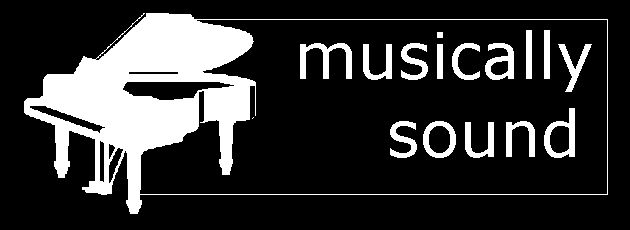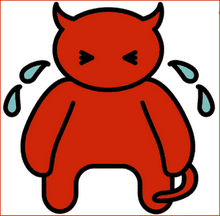 Bloc Party
Bloc PartyA Weekend in the City
[ Rock ]
Though they were initially -- and lazily -- touted as forerunners of the post-punk ‘revival’ after “Helicopter” received heavy radio play, Bloc Party made no attempt to hide the fact they were different. Refusing to exhume, exploit and exhibit a style befitting of its time (as so many of their contemporaries opted to do), they instead focused on being one of the few, truly twenty-first century bands.
Released in early 2005, Bloc Party’s debut long player Silent Alarm was most notable as a record of contrast -- of shivering warmth (“So Here We Are”, “Plans”), brutal intimacy (“Banquet”) and doleful idealism (“Helicopter”, “Price of Gas”). What made it such an intriguing dichotomy was hard to pinpoint, though a fair guess would surely incorporate the schizophrenic guitars, dizzying drum rhythms and sinister bass work, not to mention Kele Okereke’s nervous, irregular and often confusing chatter. Regardless of the exact reason, Silent Alarm continues to endure as a triumph of creativity, bravery, ambition and intelligence.
With their status cemented as such an important, modern and forward-looking rock outfit, the pressure for Bloc Party to deliver a satisfying follow-up was inevitably going to be huge. Few expected A Weekend in the City to better its predecessor, mind you; while it would be great to have got our grubby mitts on another Modern Life is Rubbish, something akin to a Room on Fire would have sufficed nicely -- in other words, a good enough reminder to reconcile the fact we fell in love with yet another bunch of awkward posh kids.
However, after repeat listens to their sophomore effort, it becomes clear that Bloc Party have failed to deliver on both counts. Instead, they have opted for another well-known approach when recording the notorious ‘difficult second album’: play it very, very, very safe. In fact, save for a handful of inspired sequences early on, the record is almost completely devoid of edge.
But should we have seen this coming? After all, given the Futurheadian risks associated with recording a more ambitious follow-up, can our boys really be blamed for looking to secure their future and pay off the remainder of those student debts? Bono’s recent knighthood suggests not, though as any artist worth his NME cover shoot will attest, bland is definitely not best.
The early signs were also not encouraging: stopgap single “Two More Years” was notable for its “shades of grey” (so helpfully pointed out by the band). Decidedly pale bass, colourless drums and a washed-out guitar line characterized the song which, backed with a dull video, inevitably succeeded in the singles chart.
What was interesting about the new sound, though, was the increased prominence of vocals compared to earlier singles. It was almost as if the music had become a single instrument, acting as a platform on which a more assured, relaxed and confident Kele could lay down his thoughts without interference. Gone were the panicked yelps and squeals of “Price of Gas”, instead replaced by more of traditional indie rock set-up.
A Weekend in the City follows this formula to the letter for the most part, exemplified most obviously in opener “Song for Clay (Disappear Here)”. Taking centre stage, Kele flicks his guitar gently while delivering a typically provocative statement of intent: ‘I am trying to be heroic in an age of modernity’. No doubt about it, this is a cracking first line of a record, threatening to pave the way for another great listen.
But then it hits, subtle as a runaway train, one of the other great sophomore slip-ups: the bit when we hear how hard it is to be so terribly rich and famous. ‘I devour flesh and wine and luxury,’ shrugs Kele, ‘but in my heart I am lukewarm / Nothing really touches me.’ Seriously, what emotion is this kind of vain moralizing supposed to inspire? Pity? Jealousy? Admiration? Whatever the intent, it surely fails, rather adding water to the already overflowing notion that all rock stars are, in some capacity or other, pig-headed egoists.
Nevertheless, I’m willing to forgive a band I once considered potential Radiohead-beaters and who I have closely followed for around four years. After all, what’s rock ‘n’ roll without a little charity? So, assuming the fois-gras references are put aside for a second, it does actually develop into a pretty good tune.
The gentle opening is soon replaced by Matt Tong’s aggressive (though admittedly formulaic) drums, meanwhile Russell Lisack’s guitar bobs and weaves nicely at a safe distance, alternating between generic hard rock riffing and more free form explorations that give Clay’s song a welcome unsteadiness. The most important line of the record -- ‘East London is a vampire / It sucks the joy right out of me’ -- is also delivered without a shred of irony and certainly deserves a mention.
(It is worth noting at this point that Gordon Moakes’ bass is, inexplicably, almost completely unnoticeable on A Weekend in the City, despite being one of the most accomplished aspects of the first record. When it is audible, it is completely unremarkable, and thus does not warrant a mention from hereon in…sorry Gordon!)
“Hunting for Witches” then kicks and squeals with all the ferocity of “Helicopter” as shredded voice samples, tiptoe guitar and up-tempo drums irresistibly combine to demand attention. A thunderous riff subsequently strikes and takes charge, driving the momentum and completing one of the band’s best intros since “She’s Hearing Voices”.
Unfortunately, Okereke is in the inexorable post-9/11 mood for poorly veiled, poorly observed social commentary, offering the following observation: ‘I'm sitting on the roof of my house with a shotgun / ... / The newscaster says the enemy's among us / As bombs explode on the 30 bus / ... / Now is not the time for liberal thought’. So he thinks Britain’s reaction to the London bombings has been excessive. Well, quite frankly, who in the predominantly left-leaning guitar rock world doesn’t? He follows it up with a cheap shot at the Daily Mail, which, though deserved, is so twenty-five years ago. What’s next -- a carefully considered critique of Hitler's domestic policy, perhaps? The song also refuses to progress musically, stuck in first gear for the duration, enhancing the sense of disappointment after such a promising start.
Thankfully, we are then treated to the best song -- musically at least -- on A Weekend in the City. “Waiting for the 3.16” is the song that sticks closest to the overall concept, successfully capturing the atmosphere of a chilly London night. Excusing another lyrical faux-pas (‘Spend all of your time trying to escape / With crosswords and Sudoku’), it really feels alive, holding its breath during the subdued verses before exploding into colour with necessarily grand walls of guitar when the chorus draws near. As if that wasn’t enough, they even throw in some choral wails to eke out a tear or two. Oh London, how we hardly knew ye.
Aside from abominable lead single and homage to rock star excees, “The Prayer”, and woeful sneer at yoof culture, “Uniform” (‘All the young people look the same / Wearing their masks of cool and indifference / Commerce dressed up a rebellion’ -- hang on, weren’t these guys part of the Converse-sponsored t-shirts and scarves retro ‘rebellion’ of years past?), the rest of the album is lyrically sound.
Okereke is obviously most at ease when musing about love, perhaps best exemplified on “I Still Remember”, a sweet recounting of unconsummated schoolboy romance. “You should have asked me for it / How could I say no?” is the key line, though the homophobic press are unfortunately given some bait to snatch at with the detail that “We left our trousers by the canal”. He’s gay?! Oh. My. God. Fetch the cameras; we need to interview this guy!
Elsewhere it’s all a bit, well, dull. Aside from the aforementioned ninth track, the entire second half of the record melts together in a thick soup of MOR mediocrity. “Where is Home”, “Kreuzberg”, “Sunday” and “SXRT” are all Coldplay songs: nice enough to look at on the plate but without anything to really get your teeth into. To put it differently, you know you’re in trouble when so much of your grandiose and supposedly ambitious ‘concept album’ is this pleasant.
So, all in all, A Weekend in the City will mostly be remembered as a major failure. In a way, though, I’d rather they mess up this badly and for it to be clearer exactly what they did wrong. One of the major issues I had with Franz Ferdinand’s You Could Have It So Much Better... was that it was almost impossible to spot the holes. It wasn’t bad but, then again, it wasn’t particularly stunning either. At least now Bloc Party knows which direction it shouldn’t be heading in. Whether they take heed, or whether the flesh, wine and luxury prove a bigger draw remains to be seen. For now, though, we are simply left with a(nother) telling lesson in how not to follow up a great first record. 46



1 comment:
Well put. I never adored bloc party but this was mor-orama.
Post a Comment